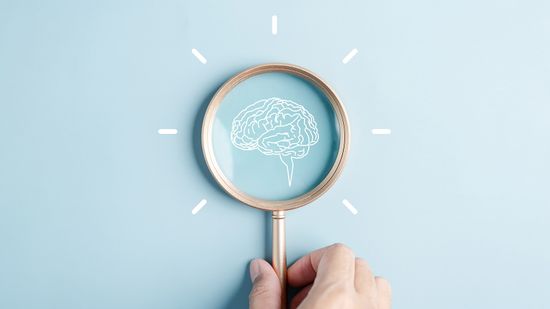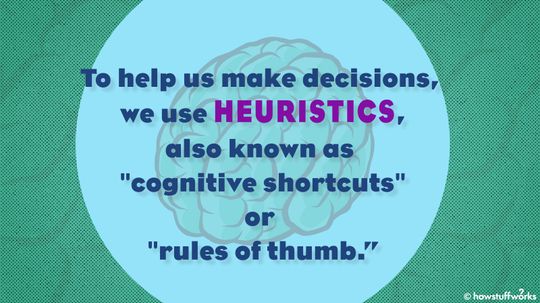Inside the Mind
What are dreams really made of? Are humans the smartest animal? What causes schizophrenia? Travel inside the mind and find out how the human brain works.

Is He Faithful? How to Identify Signs of Cheating in a Relationship

Why the Little Albert Experiment Could Never Happen Today

Milgram Shock Experiment: A Vital Lesson in Social Psychology

9 Types of Intelligence: The Many Ways to Expand Your Mind

Phineas Gage and the Birth of Modern Neuroscience

Call of the Void: A Counterintuitive Form of Self-preservation
Learn More / Page 8
Most people throughout the world are right-handed. So can they teach themselves to use their left hands, too and become ambidextrous?
The Kobayashi Maru simulation puts future Starfleet commanders in a classic "no-win" scenario. It's so accurate, even the U.S. military uses the exercise to test the measure of a good leader.
By Mark Mancini
Whether you're a procrastinator or a workaholic, you can improve your time management. How? With a timer, scheduled breaks and some serious discipline.
Advertisement
Phrenology, the belief that you could determine personality from the shape of someone's skull, was so popular in the Victorian era that phrenology parlors sprang up all over Europe and America. But the trend was soon debunked.
Heuristics are rule-of-thumb strategies that help us shorten decision-making time and solve problems quickly and effortlessly.
This new form of sound therapy takes advantage of the fact that a different frequency in each ear yields a third frequency that can allegedly calm you down or improve your focus. Does it really work? Our writer tried it out.
By Alia Hoyt
We see faces in clouds, on buildings - heck, in grilled cheese sandwiches. But why is that? And how is this a help to our survival?
By Dave Roos
Advertisement
A new study shows that mothers prefer daughters and fathers prefer sons, regardless of economic background, contradicting an earlier well-known hypothesis.
By Alia Hoyt
You could call dopamine the most misunderstood neurochemical in the brain. It's allegedly the cause of people getting addicted to drugs, chocolate or video games. But what does really dopamine do?
Researchers from Penn State University College of Medicine suggest that a shared circuit in the brain could be one reason why heavy drinking and high-fat 'junk food' cravings go hand in hand.
Maybe. A study that wasn't even about kissing turned out to (sort of) give the answer.
Advertisement
A new year is always a good time to set new goals. We've come up with five healthy changes that have been scientifically shown to improve your well-being.
By Dave Roos
ASMR has become a pop phenomenon and scientists are trying to figure out why some people love those tingling-inducing videos and others can't stand them.
Ever had a "woulda, shoulda, coulda" feeling about something? It's called regret. What really triggers this emotion - and can we trust it?
By Dave Roos
It's not just your imagination - people feel freer to bail out on others at the last minute than they used to. But why?
Advertisement
Is your first memory of lying in a crib? You may want to revisit that. A new large study found that nearly 40 percent of participants had a first memory that was improbably early.
By Alia Hoyt
Roller coaster junkies rejoice: Riding these coasters could be a safe way to deal with your addiction to endorphins.
By Alia Hoyt
The noises that others make - be it walking, chewing or breathing heavily - are very noticeable to us. Yet we seldom hear it in ourselves. Why is that?
By Alia Hoyt
A new study shows that IQ levels have been falling since 1975, reversing a 20th-century trend.
Advertisement
Ever walked from your kitchen to the living room to find your phone and then forgotten what you were looking for once you got there? Researchers think your brain is hard-wired to undergo precisely that process of forgetting.
Have you ever met someone with a unique first name, and then all of a sudden you hear the name everywhere you turn? That's the Baader-Meinhof phenomenon at work. How did it get that handle?
Are you a person who likes to be social but also values some alone time? You are? How did we guess without knowing you? Welcome to the Barnum effect.
Why does the experience of sleep paralysis often summon explanations of demonic visitations? Visit the place where dreams and reality overlap, and where science and myth attempt to interpret our hallucinations.
By Robert Lamb
Advertisement
Nostalgia, contrary to centuries of common knowledge, appears to be a good thing. A really good thing.
By Julia Layton
You've probably experienced that moment where you're driving, get lost, turn down the radio, and then think, "Why did I just do that?"
























